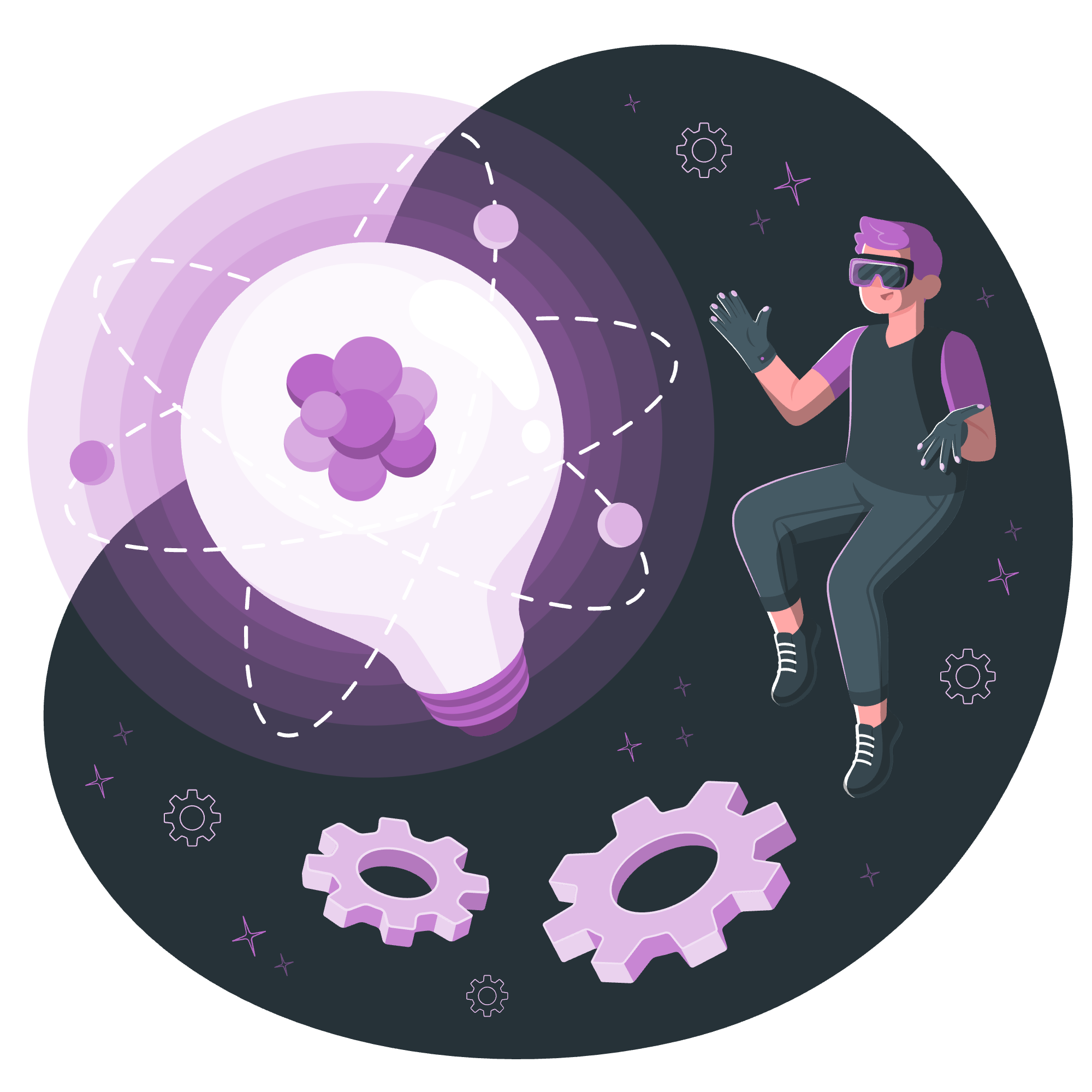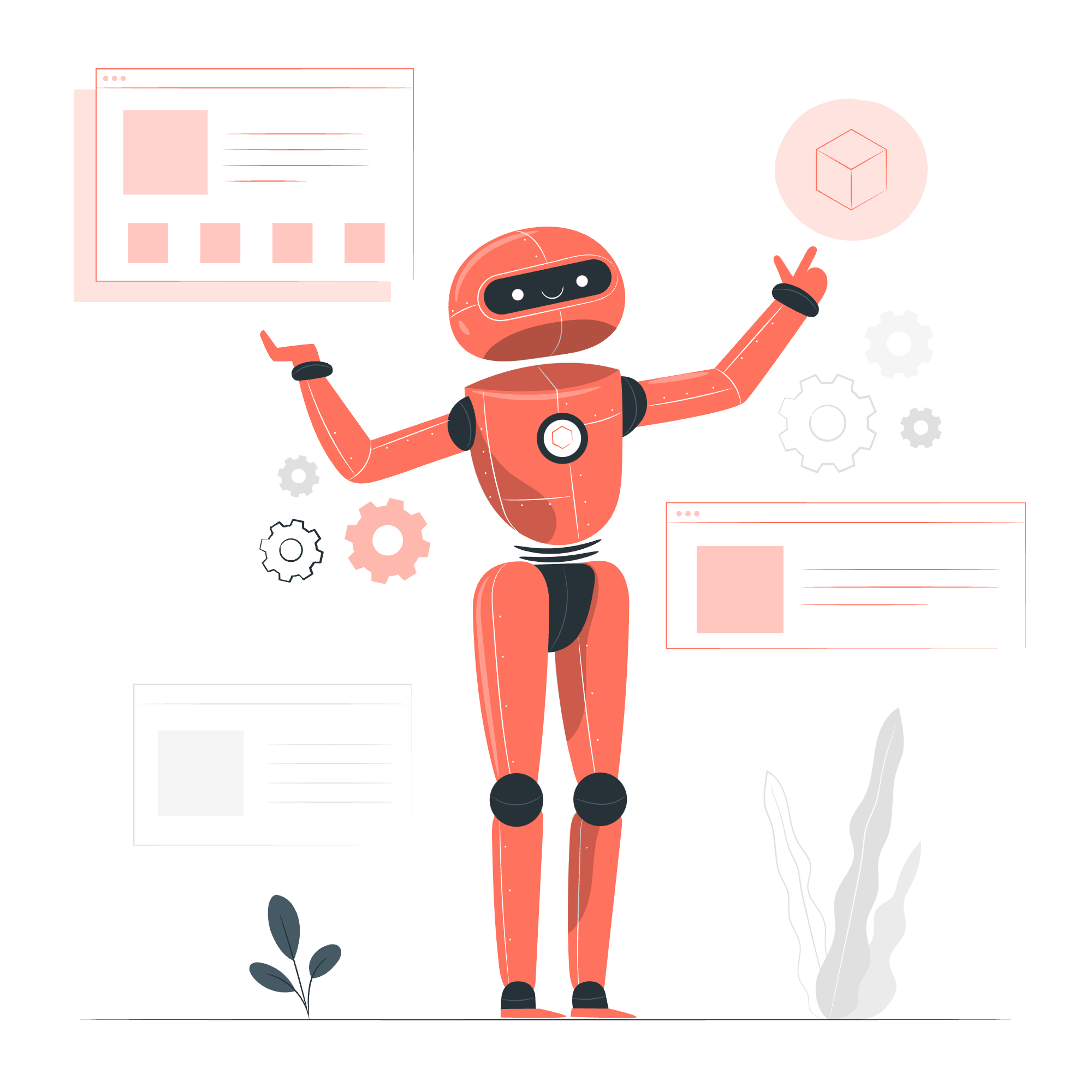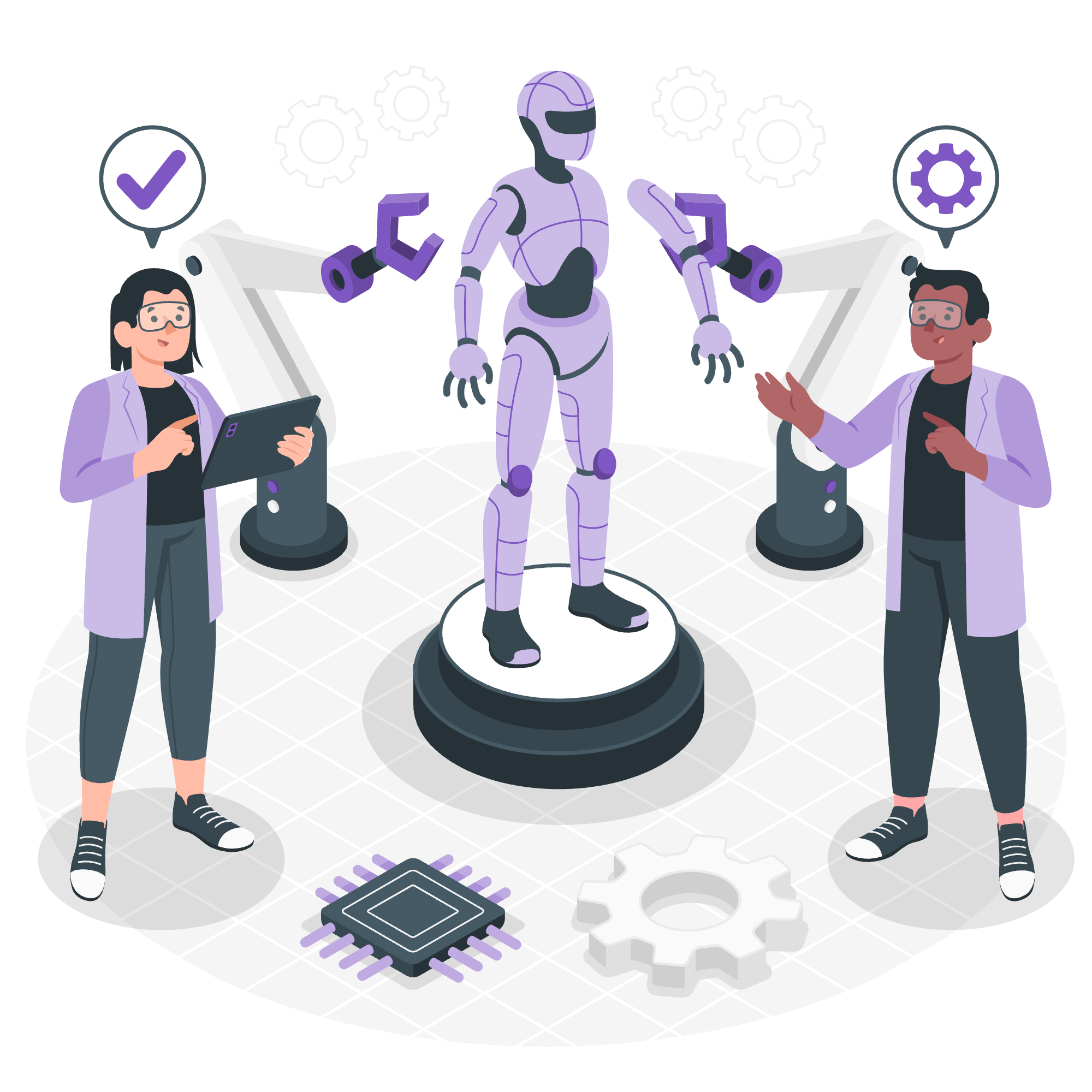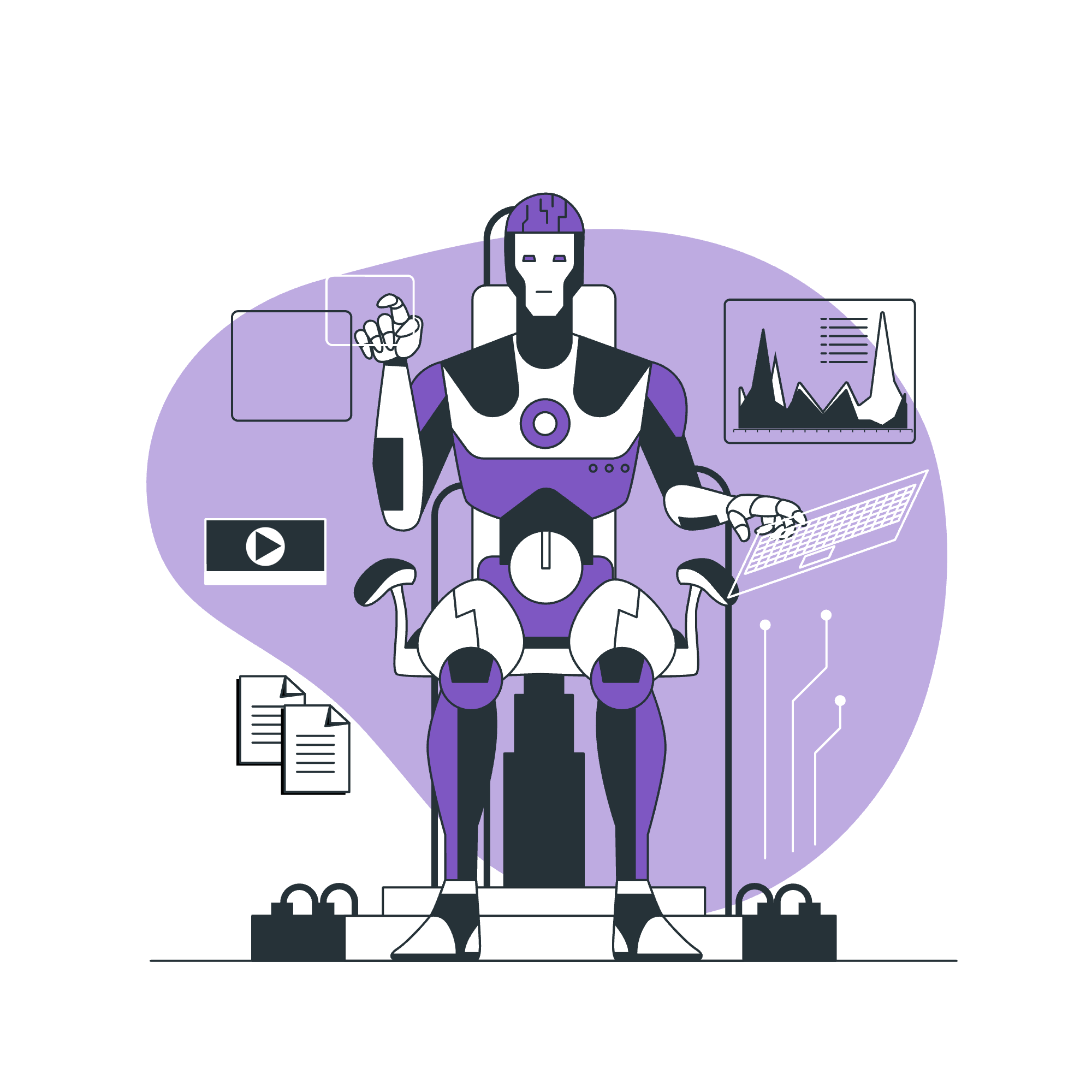Build IntelligentAI Agents
Create autonomous AI systems that understand context, make decisions, and take meaningful actions to solve complex problems.


Intelligent Automation for Complex Tasks
Our AI agents can understand context, learn from interactions, and execute complex workflows autonomously. Build systems that adapt to changing conditions and solve real-world problems with minimal human intervention.
What are AI Agents?
AI Agents are autonomous systems that can understand, decide, and act to solve complex tasks.
Intelligent Decision Making
Unlike simple automation tools, AI Agents can analyze context, make informed decisions, and adapt to changing conditions without constant human supervision.
Autonomous Workflows
Agents can orchestrate complex workflows, integrating with tools and services to accomplish multi-step tasks that would otherwise require human intervention.
Extensible Capabilities
Through tool use and integration with external systems, agents can be extended with new capabilities beyond their initial programming.

How AI Agents Work
Learn the core components and workflow of building effective AI agents.
Define the Agent's Purpose
Start by clearly defining what your agent needs to accomplish. The best agents have well-scoped domains and specific objectives.
// Define the agent's system prompt
const systemPrompt = `You are a research assistant that helps
users find and summarize scientific papers.
Your goal is to provide accurate, well-structured information.`;Connect to Foundation Model
Choose and integrate with a language model that will power your agent's reasoning capabilities.
import { openai } from '@ai-sdk/openai';
import { generateText } from 'ai';
// Set up the language model
const model = openai('gpt-4o');Add Tool Capabilities
Expand what your agent can do by connecting it to external tools, APIs, and data sources.
// Define tools the agent can use
const tools = [
{
name: 'search_papers',
description: 'Search for scientific papers',
parameters: {
type: 'object',
properties: {
query: { type: 'string' },
limit: { type: 'number' }
},
required: ['query']
}
}
];Implement Reasoning Loop
Create the decision-making process that allows your agent to plan and execute actions to achieve its goals.
async function agentLoop(query, maxSteps = 5) {
let step = 0;
let context = `User query: ${query}
`;
while (step < maxSteps) {
// Think: Determine next action based on context
const { object: plan } = await generateObject({
model,
schema: planSchema,
prompt: `${context}
What should I do next?`
});
// Act: Execute the chosen action
const result = await executeAction(plan.action, plan.parameters);
// Update context with results
context += `
Action: ${plan.action}
Result: ${result}
`;
step++;
// Check if goal is complete
if (plan.isComplete) break;
}
return context;
}Provide Response Generation
Format the agent's final output for the user based on the results of its actions and reasoning.
// Generate the final response for the user
const { text: finalResponse } = await generateText({
model,
system: systemPrompt,
prompt: `${context}
Provide a well-formatted final
response to the user's query.`
});
return finalResponse;The Future of AI Agents
Explore emerging trends and possibilities for the next generation of AI agents.
Multi-Agent Cooperation
Teams of specialized agents working together to solve complex problems that require diverse expertise and perspectives.
Improved Reasoning
More sophisticated planning and decision-making capabilities through advanced techniques like chain-of-thought reasoning.
Personalization
Agents that adapt to individual users' needs, preferences, and communication styles for more effective collaboration.
Safety & Alignment
Built-in guardrails and alignment techniques to ensure agents behave according to human values and intentions.
Efficiency & Performance
Faster, more cost-effective agents through techniques like retrieval-augmented generation and model distillation.
Democratized Creation
Tools that make it easier for non-technical users to create, customize, and deploy their own AI agents.
Agentic AI: The Next Evolution
Recent research suggests agentic AI systems could fundamentally transform how we interact with technology, enabling more natural, goal-oriented collaboration between humans and AI.
Autonomous Problem Solving: Agents that can decompose complex tasks without human guidance
Persistent Learning: Systems that improve through experience and feedback
Tool Creation: Agents that develop their own tools to solve new challenges

AI Agent Use Cases
Discover how organizations are deploying AI agents to transform their operations.
Accelerate Development Workflows
AI agents can serve as intelligent coding assistants that help developers debug issues, generate code, explain complex systems, and automate repetitive development tasks.
Automated Code Generation
Generate boilerplate code, tests, and documentation
Intelligent Debugging
Analyze errors and suggest potential fixes
Code Refactoring
Suggest improvements to existing codebases

Example AI Agents
Explore ready-to-use examples that demonstrate how to build different types of AI agents.
import { generateText } from 'ai';
import { openai } from '@ai-sdk/openai';
// Define the search tool
const searchTool = {
name: 'search',
description: 'Search the web for information',
parameters: {
type: 'object',
properties: {
query: {
type: 'string',
description: 'The search query'
}
},
required: ['query']
}
};
// Mock search function
async function performSearch(query: string) {
// In a real app, this would connect to a search API
return `Results for: ${query}...`;
}
// Create the search agent
export async function searchAgent(question: string) {
const model = openai('gpt-4o');
// Initialize conversation context
let context = `User question: ${question}
`;
// Generate a search plan
const { text: searchPlan } = await generateText({
model,
prompt: `${context}
What search queries would help answer this question?
Generate up to 3 specific search queries.`,
});
context += `Search plan: ${searchPlan}
`;
// Extract and perform searches
const searchRegex = /(?:"|')([^"']+)(?:"|')/g;
const queries = [];
let match;
while ((match = searchRegex.exec(searchPlan)) !== null) {
queries.push(match[1]);
}
// Limit to 3 queries
const limitedQueries = queries.slice(0, 3);
// Perform searches
for (const query of limitedQueries) {
const results = await performSearch(query);
context += `Query: ${query}
Results: ${results}
`;
}
// Generate final response
const { text: finalAnswer } = await generateText({
model,
prompt: `${context}
Based on the search results, provide a comprehensive
answer to the original question: "${question}"`,
});
return finalAnswer;
}Search-Powered Research Agent
This example demonstrates a search agent that can answer questions by generating appropriate search queries, retrieving information, and synthesizing the results.
Dynamic Query Generation
Formulates tailored search queries based on the user's question
Multi-Query Strategy
Uses multiple searches to gather comprehensive information
Result Synthesis
Combines multiple sources into a coherent answer
Ready to Build Your Own Agent?
Get started with our comprehensive documentation and templates to create powerful AI agents tailored to your specific needs.